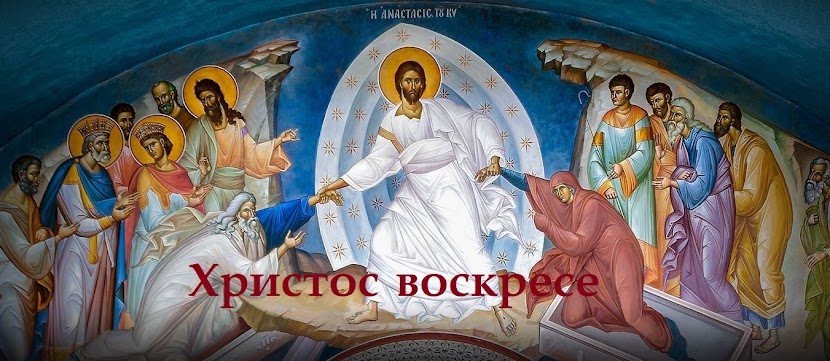ENGLISH:
The Nativity Fast, Advent
November 15/28 - December 24 - January 6
How to spend the Time of the Fast
We must devote the days of the fast to the deeds of piety, as these days are holy. The Word of the Lord witnesses that the fast… shall be to the house of Judah joy and gladness, and cheerful feasts” (Zach. 8, 19). However, the days of the fast differ from holidays and working days. On feast days the Church calls us to thank God and the saints for God's great works; and during the fasts, to be reconciled with God and to take part in the life, sufferings and the death of the Saviour and the saints. Feasts make us disposed to spiritual joy and hope, and fasts, to contrition and tears. On feast days, out of spiritual joy, the Church blesses hearty meals; but during fasts it prescribes frugal ones, lenten fare. The Church rule clearly sets forth both the appointed time of meals and the quality of lenten fare. Everything is strictly calculated to weaken carnal desires, which are excited by hearty and sweet meals. It is not designed to greatly weaken our flesh, but rather to make it light, strong, and more submissive to our spiritual will, and to preserve it vigorous to fulfill the demands of the spirit.
The Church rule teaches us what we must avoid during fasts: “Those who keep the fast must strictly observe the rules on the quality of the fare, i.e., to abstain from eating some foods. These foods must not be considered foul (no so!) but only improper during the fast, and not allowed by the Church at that time. During fasts we must abstain from eating meat, cheese, butter, eggs, milk and sometimes fish, according to different fasts.”
There are five degrees of strictness during fasts:
1) complete abstinance from meals;
2) xerophagy, or eating uncooked food;
3) eating hot food without oil;
4) eating hot food with vegetable oil;
5) eating fish.
When fish is allowed you may also eat hot food with vegetable oil. Those who have a desire to keep a stricter fast than what is prescribed by the Church rule should first receive a blessing to do so from their spiritual instructors.
A bodily fast without the spiritual fast is meaningless for the soul's salvation; to the contrary, it may become spiritually harmful if a person abstaining from food is filled with feelings of his superiority. A true fast is bound up with prayer, penance, eradicating evils, forgiveness of offences, abstaining from passions and vices, entertainment and watching TV. The fast is not an object in itself but a means of restraining our carnal desires and cleansing ourselves of sins. Without prayers and penance fasting becomes only a “diet”. In keeping a bodily fast it is necessary to keep a spiritual fast: Brethren, if we keep the fast of the body, let us keep a spiritual fast to save us from unrighteousness, the Church exhorts us. The essence of fasting is expressed in one of the Church hymns: “O my soul, in abstaining from food but not from desires, in vain do you seek consolation; for if fasting does not reform you, you will incur God's wrath as being false, and make yourself like the evil demons who never eat”.
The basis of fasting is the struggle against sins through abstaining from food, not through physical exhaustion. Therefore all who keep the fast should take account of their strength and the degree of experience in following rules of fasting. Fasting is an ascetic labor which requires training and gradualness. It is necessary to enter the labor of fasting gradually, beginning with abstaining from dishes containing meat and milk products on Wednesdays and Fridays throughout the whole year. Those who try to go from never fasting to suddenly fasting very strictly are likely to either ruin their health, or to become impatient and irritated due to hunger. Such zeal not according to reason causes them to become angry with everyone and everything; the fast becomes insufferable for them, and in the end they just give it up entirely. To make our fast endure we need to learn how to do it gradually, with great attention, step by step. Each should define how much food is sufficient for him, and then gradually decrease his daily intake of food to to the optimum amount, so that he is not weak and can do his daily work. The main rule given by the Lord is: let our hearts not to be burdened with gluttony and drinking. Those who want to keep the fast should consult an experienced priest, tell him about their spiritual and physical condition, and ask his blessing to keep the fast.






